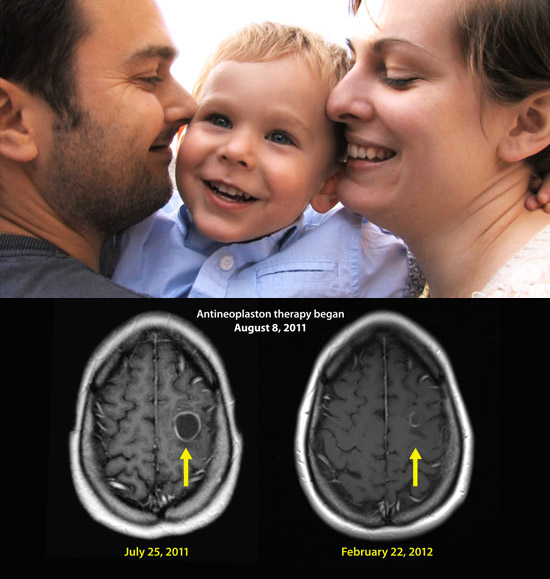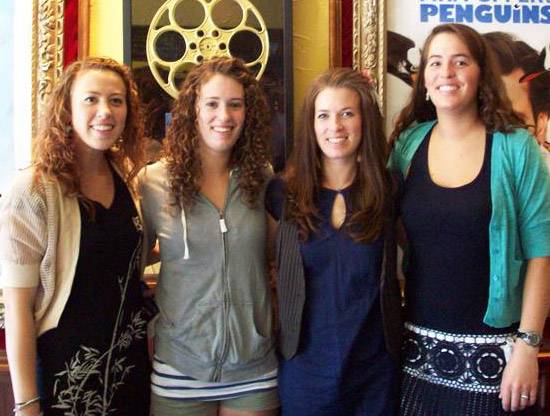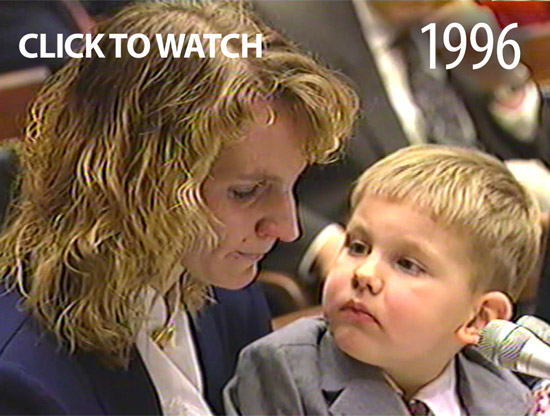September 22, 2013 Dear Burzynski Movie Subscribers,
Three former patients of Dr. Burzynski's Antineoplaston (ANP) therapy are having weddings this year.
LAURA HYMAS
Laura Hymas' story was covered in great extent in Burzynski: Cancer Is Serious Business, Part II.
She was diagnosed with a Glioblastoma Grade IV brian tumor on Christmas Eve in 2010.
After surgery failed her, and after being forced to take Temodar (chemotherapy) to qualify
to enter a clinical trial using Antineoplastons (ANP)—she started ANP in 2011, and
experienced a complete remission less than a year later. Also included in the documentary
is an interview with her neurosurgeon who performed her biopsy, as well as an audio
recording of her oncologist refusing to participate if she choose ANP over conventional therapy—
while telling Laura in the same breath that she will not survive.
This October, Laura and Ben will be married in their hometown in England.
I will be attending their wedding and will share updates and photos from their wedding in late October.

DUSTIN KUNNARI
Dustin Kunnari was diagnosed with a deadly medulloblastoma brain tumor in 1994 at only 3 years old.
Dustin's parents refused to subject him to the poor outcome and toxic nature of radiation and
chemotherapy and instead decided to have Dustin treated with Antineoplastons (ANP).
Dustin and his parents were featured in "Burzynski, the Movie" (Part 1), where the Kunnari family
was seen begging the FDA in front of Congress to allow Dustin to continue his life-saving therapy.
See a recent news segment with the Kunnari family (click here).
The Kunnari family won their battle with the FDA, and Dustin soon won his battle against his
once-deadly medullablastoma brain tumor.
Watch the clip of Dustin and his mother Mariann from the 1996 hearings, below:
On August 17, 2013—Dustin Kunnari was married to the lovely Calah Hester.
Below are photos of Dustin's wedding with Dr. Burzynski in attendance!

KENDRA GILBERT
At age 22 Kendra Gilbert was diagnosed with an Anaplastic Astrocytoma brain tumor.
In 2007, after all conventional therapy failed her, she began Antineoplaston therapy.
Kendra completed Antineoplaston therapy in 2009.
As of right now (September 2013) Kendra has been cancer-free for 5 years.
She will be married later this year.
Read a 2011 news article about Kendra.
(Kendra is pictured on the far right)

***********
While the future of Antineoplastons still appears to be uncertain due to recent FDA obstruction
(if you haven't seen "Burzynski: Part II", you need to—to understand this FDA action)
the lives saved using Antineoplastons still continue to grace the Earth.
Don't Become A Slave To Your Smart Phone
It seems like almost everyone has smart phones these days and while these phones are definitely helpful in a number of ways, many people become slaves to their smart
phones without even realizing it. These people are unable to let that little blinking light go unanswered finding it necessary to answer or at least look at every little call, every single text
message and then of course find themselves checking out their twitter and facebook updates as well.After a while, even though each of these tasks may only take a few seconds these constant
interruptions from your smart phone can throw you off balance, reduce your productivity, and even interfere with the simple enjoyments of life. You have in fact, become addicted to your smart phone
and a slave to that little gadget that was designed to make your life easier, but instead controls your life more than you might think.So exactly how do you avoid becoming a slave to your smart
phone? The answer is simple in theory, but difficult in reality. The first thing you need to do is look for that on and off switch and then turn that smart phone off. Yes, it is difficult and you are
going to feel a touch of anxiety the first few times that you actually use that off switch. But, once you adjust to not having that little blinking light or that buzzing or cute little jingle pulling
you away from that task at hand you will find not having that smart phone constantly beckoning you away from other things is a relief. That's right you will actually feel some relief, almost like you
are on a miniature holiday.By only having your smart phone on when you actually need it you will actually begin to feel all the benefits that your smart phone can offer without any of the
frustration. You will also find that you can be more productive at your job, enjoy going out with friends, spending time with family, or watching that sporting event or movie because you can
concentrate on what is going on and get lost in the moment without something constantly calling you away from your life.Turning off that smart phone will also improve your relationships with family,
co-workers and others. There is nothing more annoying to people than to be in the middle of a conversation or project and have someone keep interrupting the flow of what is going on by constantly
answering their smart phone or checking their messages. No one likes being interrupted and they certainly don't like playing second fiddle to a machine no matter how "smart" that machine may
be.However, it is not the machine that people will see as uncaring or rude. It is you. Your constant attention to that phone rather than those who should really matter can really put a strain on your
relationships with both family members and those people you work with. So it is essential to ensure that your smart phone works for you not put you under its spell.







